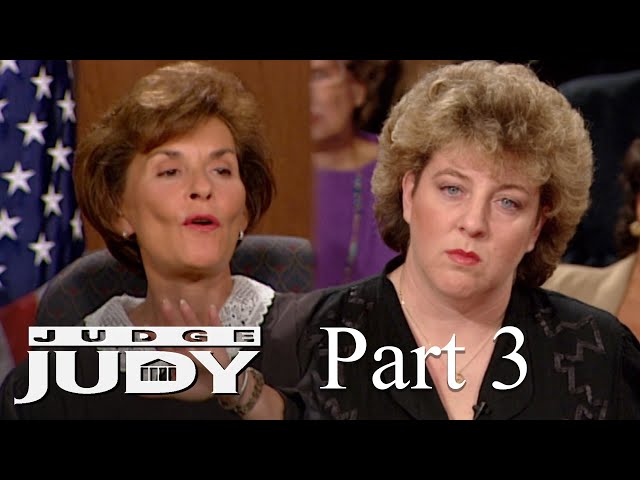The fourth part of “Woman Sues Late Mom’s Fiancé for Mementos” reveals a case filled with emotion, memory, and the struggles that come with loss. This courtroom drama from Judge Judy’s series strikes a chord with many who have faced grief and the complications that follow.
Background of the Case Woman Sues Late Mom’s Fiancé for Mementos
Mary Louise, the daughter of a deceased woman, sues her late mother’s fiancé, Jose. After her mother passed away unexpectedly, Mary Louise claims Jose kept several personal mementos that belonged to the family. These include photographs, jewelry, and sentimental household items.
Jose insists that many of these items were gifts or shared possessions during their time together. He says he never meant to keep anything to hurt the family but wanted to honor their relationship.
Grief and Ownership: Where Law Meets Emotion
This case is more than a legal dispute. It opens a conversation about grief and how people hold onto things to remember loved ones. Judge Judy points out that people often express anger because it is easier than facing their pain. Losing a parent or loved one suddenly is deeply painful.
Mary Louise is not just fighting for objects. She wants to keep her connection to her mother’s memory and find closure. These items hold emotional value far beyond their material worth.
Key Legal Questions Woman Sues Late Mom’s Fiancé for Mementos
Judge Judy focuses the case by asking important questions:
-
Were these items gifts or jointly purchased?
-
Were they personal to Mary Louise’s mother or shared between her and Jose?
-
What legal rights does Jose have over belongings in a shared home?
Judge Judy makes it clear that emotional attachment matters but the court must base decisions on facts. She looks for evidence to prove ownership.
Emotional Testimonies
Both sides share heartfelt stories. Mary Louise explains how each item reminds her of her mother. Jose expresses his grief and shares how these items symbolize his love.
The courtroom gets tense when Mary Louise says Jose demanded half of her mother’s ashes. Jose denies this and says he only wanted to honor her memory.
This case shows how legal battles bring out strong emotions.
Judge Judy’s Decision: Clear and Practical
After reviewing the list, Judge Judy orders Jose to return family photographs, heirlooms, and personal effects to Mary Louise. She states these items clearly belong to the family.
However, she says shared household items, like the toaster and dining furniture, were part of the life Jose and the mother built. She says it is unreasonable for Mary Louise to demand those.
Judge Judy states, “You want to take furniture from a home your mother set up with this man? That’s outrageous.”
Ethical Questions in Inheritance Disputes
This case raises important questions about inheritance when couples are not married. Many people live together for years without a legal marriage. When one partner dies, family disputes often arise.
This case warns people to:
-
Write wills or clear legal plans.
-
Communicate their wishes with family and partners.
-
Understand grief can cause conflicts over belongings.
Why This Story Connects with Viewers
Many viewers relate because they’ve experienced similar feelings. Losing a loved one is painful, and fights over belongings make it harder. This story shows the emotional weight behind what might seem like a simple legal fight.
It also reflects how family laws must adapt as family structures change.
Final Thoughts and Lessons Woman Sues Late Mom’s Fiancé for Mementos
Judge Judy’s courtroom may be small, but the cases reflect big real-life issues. This episode teaches important lessons:
-
Grief shows up in many ways. People sometimes show anger when they feel hurt.
-
Clear legal plans help avoid family fights.
-
Even small items can carry huge emotional meaning.
This story reminds us that during loss, empathy, communication, and clear legal planning can prevent disputes.






